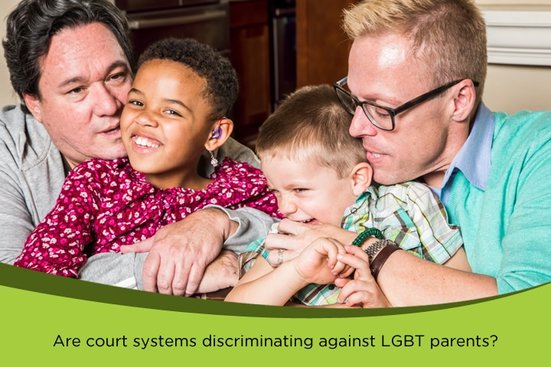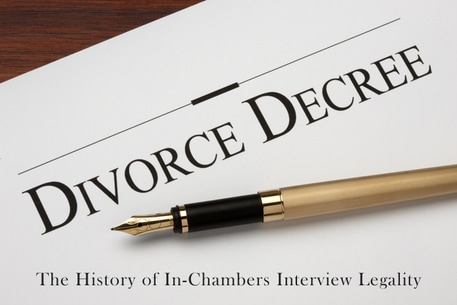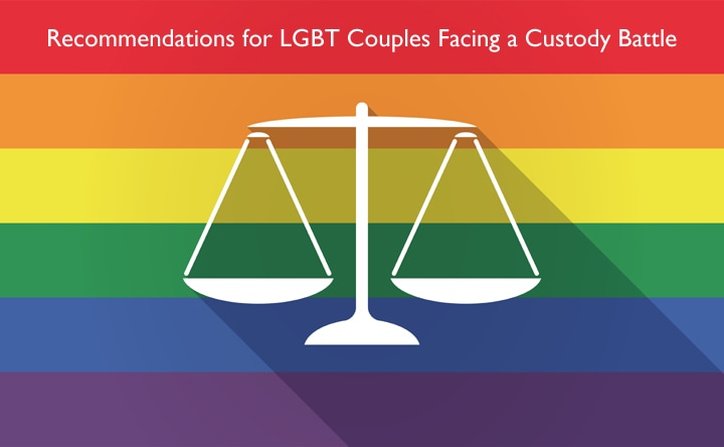Why Custody Battles for LGBT Parents Are More Challenging—and How to Prepare
|
Considerations for LBGT
|
inconsistent definitions. Laws vary dramatically at the state and local level, and to make matters worse, these laws are constantly changing. So where do most courts land, and what can you do mitigate the confusion here?
Determining Parent Legality
|
Because same-sex couples can’t naturally have children on their own, the legal definition of who qualifies as a parent is more complex. There are circumstances where only one partner may be considered the legal parent. For example, one parent may have a biological child from a previous relationship, and their current partner may not have any legal right to parentage.
In cases where only one parent is considered legal, LGBT custody battles are relatively simple. In almost every conceivable circumstance, the legal parent retains full custody of the child, and the secondary, non-legal parent will not be granted visitation rights or any other means of shared custody. The secondary parent will also not be responsible for child support payments. This doesn’t mean that it’s impossible to seek visitation rights as a secondary parent, or that it’s impossible to seek child support from a secondary parent, but it is significantly more difficult and less straightforward than it would be with a traditional divorce. |
In many cases, both partners are considered legal parents. This is reflected in the following scenarios:
|
Lack of History
The biggest problem facing the LGBT community in divorce proceedings is the lack of legal history to set a precedent for future battles. For example, there haven’t been many cases of a secondary, non-legal parent seeking full custody of a child after the end of an LGBT partnership, so there’s no clear rubric for a judge to make a decision. It’s possible to forge a path forward by being the first example of a specific situation, but these novel cases tend to be drawn out and messy. This is unpleasant to go through, but may be worth it to win custody or visitation rights for a child you love but don’t legally guard.
The biggest problem facing the LGBT community in divorce proceedings is the lack of legal history to set a precedent for future battles. For example, there haven’t been many cases of a secondary, non-legal parent seeking full custody of a child after the end of an LGBT partnership, so there’s no clear rubric for a judge to make a decision. It’s possible to forge a path forward by being the first example of a specific situation, but these novel cases tend to be drawn out and messy. This is unpleasant to go through, but may be worth it to win custody or visitation rights for a child you love but don’t legally guard.
Recommendations for LGBT Couples Facing a Custody Battle
If you’re a partner in an LGBT relationship looking at the prospect of a custody battle, here are some suggestions to make the process smoother:
- Negotiate terms on your own. Courts are frustratingly complicated in this regard. Even if you have a solid, clear, and logical case demonstrating your rights to shared custody, the ambiguity of law in your area, or the lack of recognition of your relationship, may undermine your case. Accordingly, it’s far better and less painful to negotiate terms on your own. If you both want to visit and raise your child together, work out a deal that splits custody in a mutually agreeable way. If you think the secondary parent should pay child support, request it. Spend serious time negotiating and compromising on your own before you seek legal help; if you can come to a mutually agreeable situation, you can almost skip the courts altogether.
- Do your research. It would be impossible to compile a comprehensive list of each state and region’s laws on same-sex partnerships—and useless, since they’re evolving so quickly. One of your best strategies is to simply do your research in advance. Find out how your state recognizes your partnership, whether one or both of you is considered the legal parent of the child, and look up any historical cases that may help you set accurate expectations of what’s to come. The more informed you are, the better you can plan ahead.
- Avoid seeking split custody. Unless you’re both legal parents in a progressive state with historical examples, it’s unwise to seek split custody. Doing so will complicate the process, and your request is unlikely to be honored. Again, it’s better to establish a mutual, non-legal framework for each parent’s involvement in the child’s life.
- Be willing to provide a “test case” if necessary. However, if you’re unable to reach a compromise, and it’s important for you to stay in your child’s life, don’t shy away from putting up a fight. A lack of historical cases will make things difficult—but not impossible. Somebody needs to present the first “test case” of this kind as an example for others to follow, so if it’s an important cause to you, pursue it.




